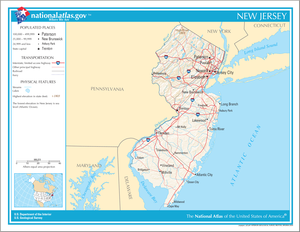By Star-Ledger Editorial Board/The Star-Led...
October 22, 2009, 5:41AM
When Akouavi Kpade Afolabi lured more than 20 young women from West Africa to New Jersey with promises of a better life, she lied.
Once here, the young women — who ranged in age from 10 to 19 — were made to work countless hours in her family’s two hair-braiding salons for no pay.
Her attorney argued the treatment of the girls was cultural. That’s hard to believe. But it was profitable — and criminal. She stole their meager tips, barred them from attending school and threatened them with violence and voodoo curses if they tried to leave.
Last week, she was convicted on 22 counts of human trafficking and visa fraud. She now faces her own captivity, 20 years in prison. A fitting punishment.
Sadly, such abuse is the story of tens of thousands of women from around the world who are trafficked to America in hopes of escaping the poverty of their homelands. They think they’ll be working in factories, as domestics and babysitters.
Alone in a foreign land and in deep debt for their travel and lodging, many soon realize they’re trapped in a tale of modern-day slavery.
They’re beaten, humiliated and sexually assaulted. Passports and other documents are taken away. Some are made to work long hours in factories and other businesses without food or pay. Others are forced to work as prostitutes. Several of the girls, who were smuggled from Togo and Ghana, were also used for sex by Afolabi’s son and her ex-husband. At least one was a minor.
The State Department estimates about 17,500 people — men, women and children — are brought here every year as forced laborers. Some 4,00 are believed to end up in New Jersey. Many are used for sex work.
Rep. Chris Smith (R-5th Dist.), chairman of the Human Trafficking Caucus, pushed for and succeeded in getting legislation enacted to help victims. The Victims of Trafficking and Violence Protection Act of 2000 set aside $95 million for enforcement and anti-trafficking provisions and called for life imprisonment for anyone convicted of human trafficking. Under the law, the young women and girls victimized by Afolabi may be eligible for the same benefits granted to political refugees.
In this case, Immigration and Custom Enforcement has already granted the minor girls special nonimmigrant status, which will allow them to remain in the United States for three years while they apply for legal residency. ICE officials could not readily provide information on the adult victims.
Most people would like to think such things don’t happen in their communities, that forced servitude is a brutality of the past. But modern-day slavery is alive and well, even here in New Jersey. We would all do well to educate ourselves about how human trafficking works, and what it looks like.
http://blog.nj.com/njv_editorial_page/2009/10/human_trafficking_surrounds_us.html

![Reblog this post [with Zemanta]](http://img.zemanta.com/reblog_e.png?x-id=bf985a19-265e-4b8c-a0a9-8a2b19e9103f)

No comments:
Post a Comment